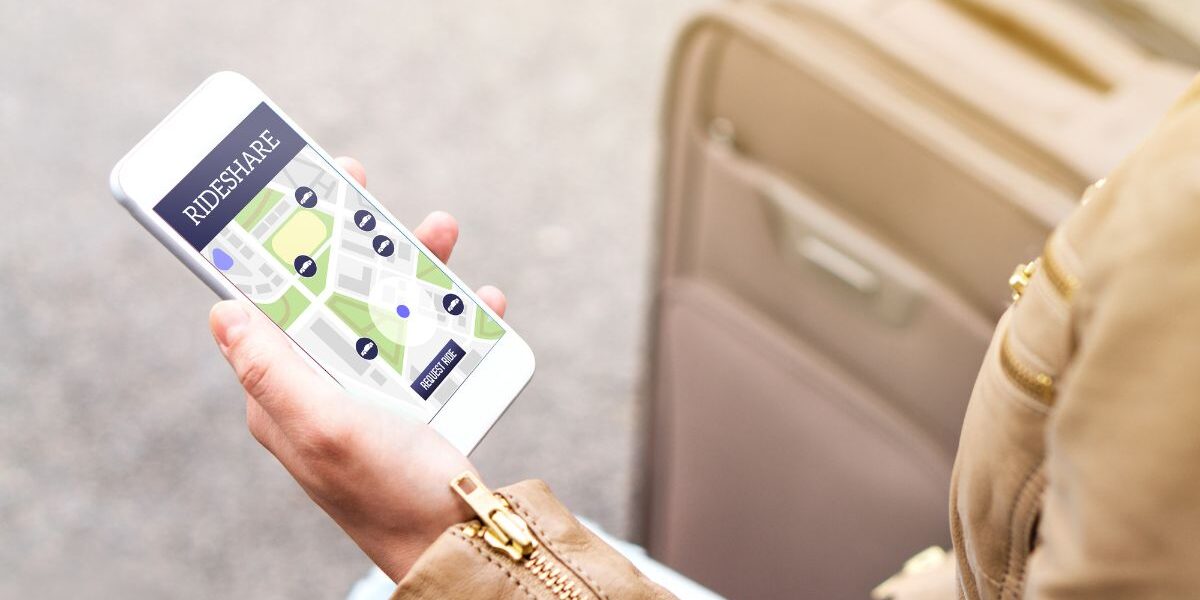
Understanding Kansas City Rideshare Injury Claims
In today’s fast-paced world, rideshare and food delivery services like Uber, Lyft and DoorDash offer unmatched convenience, reshaping our everyday travel and dining experiences. Along with these modern conveniences come a multitude of risks for drivers, passengers and pedestrians alike. As skilled Kansas City rideshare injury trial lawyers, with over three decades in personal injury law, Kendall Law Group is here to make you aware of the dangers and to help guide you in the event you or someone close to you suffers a serious injury caused by the negligent driving of a rideshare of food delivery service driver.
But first, let’s take a look at what these risks are and why they happen.
Risks Posed by Rideshare and Food Deliver Services in Kansas City
The gig economy’s emphasis on speed and efficiency incentivizes drivers to push boundaries, sometimes at the cost of safety. Primary risks associated with these services include:
- Distracted Driving: Drivers glued to their apps for the next job alert can lose focus on the road, increasing the risk of accidents for everyone.
- Reckless Driving: The rush to deliver food or ferry passengers quickly can result in speeding and risky driving behavior.
- Driver Fatigue: Long hours and the allure of peak pricing times can lead to exhaustion, impairing a driver’s reaction time.
- Vehicle Maintenance Neglect: Drivers, in a bid to cut costs, may skimp on essential maintenance, elevating the risk of vehicle failure.
- Training Deficit: The lack of formal training for many rideshare and delivery drivers can result in unsafe driving, especially under challenging conditions.
- Insurance Gaps: Standard personal auto insurance may not cover commercial activities, potentially leaving gaps in compensation for accidents.
Who Pays for Rideshare Accident Injuries?
In the event of a rideshare accident, the question of who pays for injuries depends on several factors, including the specific circumstances of the accident, the insurance policies in place, and the state’s laws where the accident occurred. Here’s a breakdown of how these factors come into play:
- Driver’s Personal Insurance – Rideshare drivers are required to maintain their personal auto insurance policies. However, personal policies may not cover incidents that occur while the driver is logged into the rideshare app and working. Drivers often need additional rideshare insurance to fill these gaps.
- Third-Party Insurance – If another driver (not the rideshare driver) is at fault for the accident, that driver’s auto insurance may be responsible for covering injuries to the rideshare driver, passengers, and others affected by the accident.
- State Laws and Insurance Policies – The determination of who pays for injuries may also be influenced by state laws, including whether the state follows at-fault or no-fault insurance rules. In no-fault states, each party’s own personal injury protection (PIP) coverage may pay for their injuries regardless of who is at fault. In at-fault states, the party responsible for the accident (or their insurance) typically covers the injuries.
- Rideshare Company Insurance Coverage – Major rideshare companies like Uber and Lyft provide insurance coverage for their drivers and passengers, but the coverage depends on the driver’s status at the time of the accident:
- App Off: If the rideshare driver’s app is off at the time of the accident, the driver is considered off-duty. Therefore, any injuries would typically be covered by the driver’s personal auto insurance policy.
- App On, waiting for a Ride Request: When the driver is logged into the app but has not yet accepted a ride request, the rideshare company provides limited liability coverage. This usually includes some level of injury coverage, but it may be secondary to the driver’s personal insurance.
- During a Ride or En Route to Pick Up a Passenger: Once a ride has been accepted, rideshare companies provide up to $1 million in liability and uninsured/underinsured motorist coverage. This coverage is designed to address injuries to passengers, drivers, and potentially third parties until the ride is complete.
What to Do After a Kansas City Rideshare Car Crash
If you’re involved in an accident with a rideshare (e.g., Uber, Lyft) or food delivery driver (e.g., DoorDash, UberEats), taking the right steps immediately afterward can be crucial for ensuring your safety, securing the necessary information, and protecting your legal rights. Here’s a comprehensive guide on what to do:
- Check for Injuries and Ensure Safety:
- Assess for Injuries: Immediately check yourself and others for injuries. Call 911 if anyone is injured or if there’s a need for medical attention.
- Move to Safety: If it’s safe to do so and the accident is minor, move vehicles out of traffic to a safe location.
- Call the Police & Report the Accident: It’s important to have a police report filed for the accident, especially if there are injuries or significant damage. This report can be vital for insurance claims and any legal matters.
- Exchange Information:
- Gather Details: Exchange names, contact information, insurance details, and license numbers with all parties involved, including the rideshare or food delivery driver. Note the make, model, and color of the vehicles involved.
- Rideshare or Delivery Service: Obtain information about the rideshare or delivery service the driver is associated with, including whether they were on duty.
- Document the Scene & Take Photos: Document the accident scene, all vehicles involved, visible damage and relevant road signs or conditions.
- Witness Information: If there are witnesses, get their contact information as they may provide valuable statements later.
- Seek Medical Attention: Even if you don’t feel injured immediately, it’s wise to have a medical evaluation. Some injuries, like whiplash, may not be apparent right away.
- Consult with a Kansas City Rideshare Injury Attorney: Consider consulting with a legal professional who is knowledgeable in rideshare or food delivery accidents. They can provide advice on how to proceed, especially if you’re facing medical bills, lost wages, or pain and suffering.
- Contact Your Insurance Company: Notify your insurance company about the accident. Provide them with the information you’ve gathered but refrain from speculating about fault.
- Notify the Rideshare or Delivery Service: Inform the respective service about the accident. Both Uber and Lyft, as well as major food delivery services, have in-app features or procedures for reporting accidents.
- Keep Detailed Records: Keep a record of all documents related to the accident, including medical bills, police reports, correspondence with insurance companies, and any other relevant information.
- Avoid Social Media: Refrain from discussing the accident details on social media. Posts or comments can potentially be used against you in legal or insurance proceedings.
- Monitor Your Health: Follow through with any recommended medical treatments or follow-up appointments. Some injuries might only become fully apparent or worsen after the accident.
Skilled Rideshare Injury Attorneys Near Me
If you or your loved one has been seriously injured or tragically lost due to a negligent rideshare or food delivery service driver in Kansas or Missouri, you’re not alone. The emotional, physical and financial toll of a catastrophic personal injury can be overwhelming, but Kendall Law Group is here to help you put your life back together.
Contact us today for a free consultation and take the first step toward your future. (816) 531-3100
Additional Resources
The Impact of Delayed & Gapped Treatment in Missouri & Kansas Car Accident Injury Claims
Navigating Medical Payment Coverage (MedPay) in Kansas and Missouri
Kansas Personal Injury Protection (PIP) Coverage Explained
The Silent Aftermath: Unmasking TBI Post Auto Accident
Auto Accident Delayed Injury Onset
The Impact of Delayed & Gapped Treatment in Missouri & Kansas Car Accident Injury Claims






